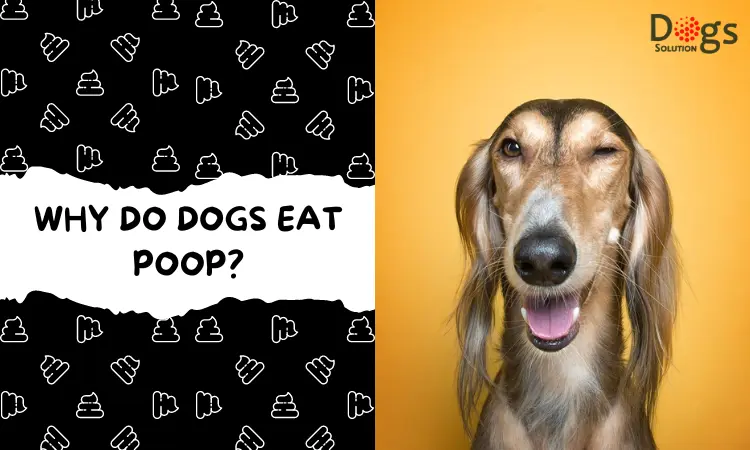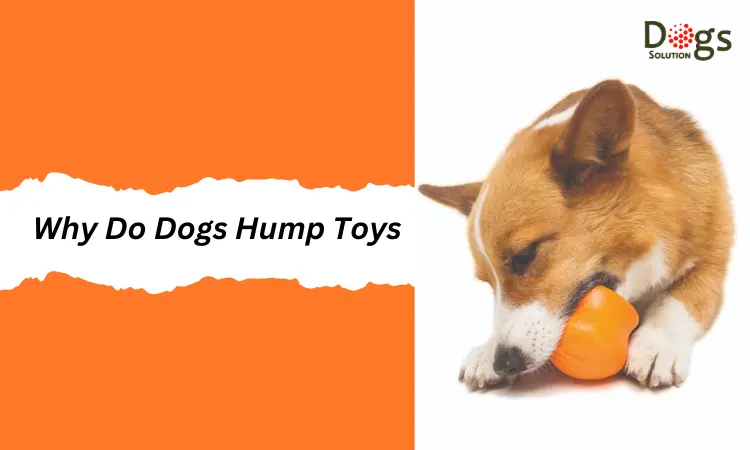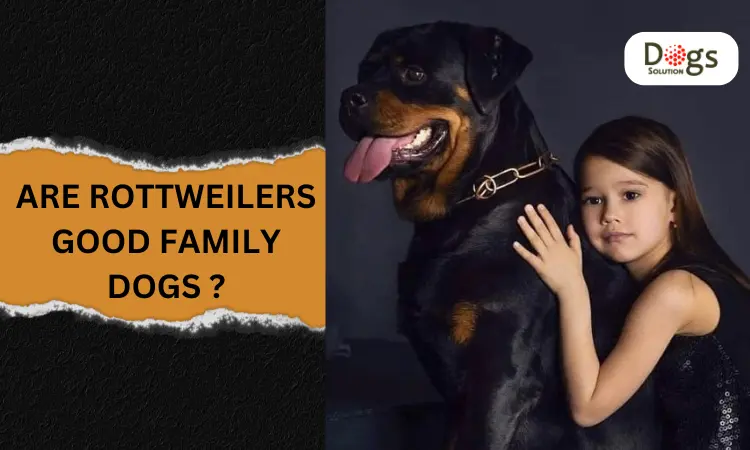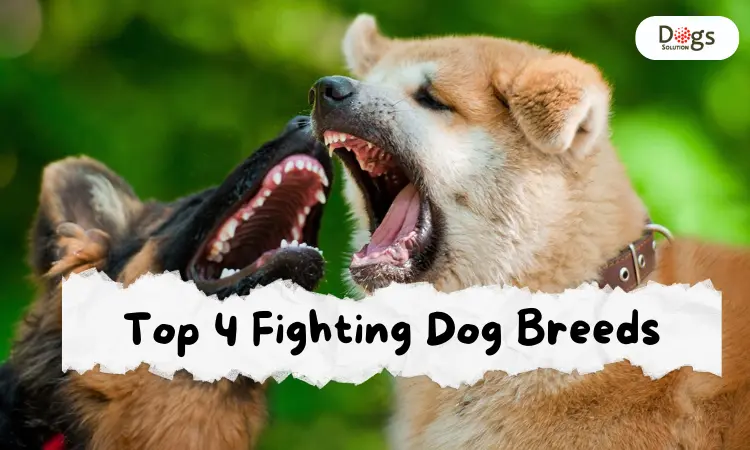Have you ever seen your dog eating poo and wondered, “What in the world is going on?” You are not alone in being perplexed by this mysterious dog behavior, so don’t worry. Pet owners frequently find this puzzling. why do dogs eat poop Because Poop-eating dogs may sound disgusting.
Once you get over the initial “eww” issue, there’s a straightforward yet fascinating journey to comprehend our dogs, their inclinations, and the strange motivations for their adventures eating poop. It’s time to solve Why does my dog eat poop and why dogs are drawn to the smell of other animals or their feces!
Let’s explore the strange world of canine behavior!
What is Coprophagia?
Coprophagia, or eating waste, is a widespread activity reported in around 25% of dogs. To better understand this occurrence, a 2018 study published in the Journal of Veterinary Medicine and Science polled almost 1,400 dog owners nationwide.
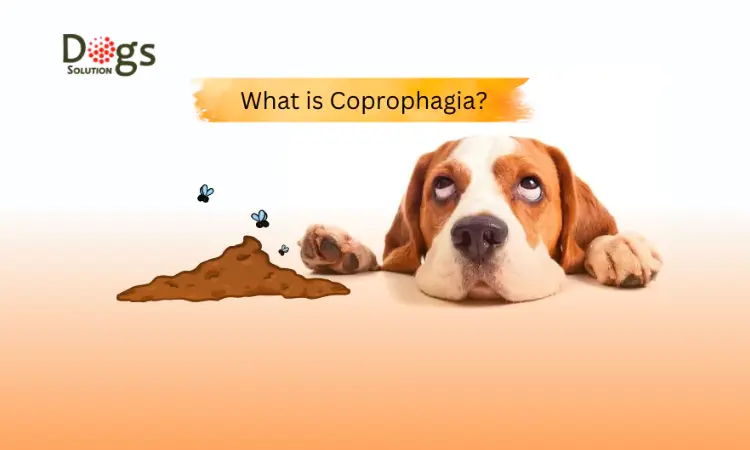
The findings showed that 23% of dogs had eaten poop at least once, and 16% were classified as “frequent” poop eaters, having done so at least six times during the study.
Why do dogs eat poop?
There is no one right solution when it comes to understanding why dogs eat poop, thus several theories must be taken into consideration.
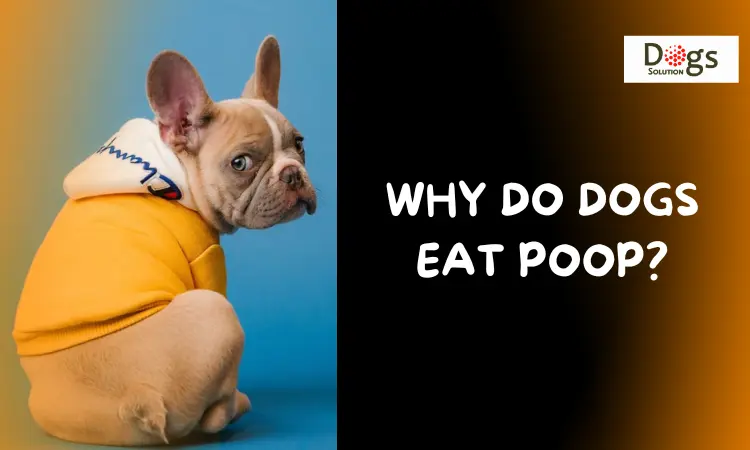
If you’ve seen your dog exhibit this behavior, there could be several explanations, including nervousness, the need for attention, loneliness, solitary confinement, or an improper relationship with food. Let’s explore the reasons why dogs eat poop.
They like the taste of poop
Your dog may enjoy eating poop as one explanation for their behavior. Dogs can detect undigested lipids, proteins, or other things that may have an enticing scent since humans have different senses of taste and smell. Some dogs just enjoy the way that dog feces taste and feel. Notably, 92 percent of dogs who consume their poop prefer it fresh, usually within a couple of days.
Possible medical causes
If your dog eats stool, there may be a health concern. In mature dogs, this behavior may indicate issues with diabetes, Cushing’s disease, nutritional deficiencies, vitamin absorption issues, thyroid disorders, or drug reactions.
The effect of boredom, stress, or anxiety
Long-term isolation can cause dogs to develop habits like eating their poop. Anxiety, boredom, or stress could cause this reaction. Your dog might turn to eat poop if they are left alone at home for extended periods for lack of something better to do. According to studies, dogs kept alone in basements or kennels are more likely to exhibit this behavior than dogs who live near their human friends.
Greedy eaters are more likely to eat poop
Poop-eating behavior is more common in dogs with a strong appetite and a propensity to snatch or steal food. Research suggests that canines classified as ‘greedy eaters’ are more prone to this behavior. One reason for this behavior could be your dog’s strong food orientation.
It’s copied or learned behavior
Devoted dog moms lick their puppies out of instinct, which helps them learn to use the potty and stay clean. They might even eat their puppy’s poop to maintain cleanliness and keep parasites and illnesses out of the neighborhood. Puppies naturally emulate their moms in this way.
They Want to Get Your Attention
Your dog may intentionally engage in this behavior to get more attention if they are an attention-seeker and understand that you become upset when you catch them eating poop. Eating poop might become a tactic to get more attention.
They’re Scared of Being Punished for an Accident
When dogs are repeatedly punished by their owners for defecating indoors, they may develop the habit of eating their own waste as puppies. The dog, perhaps fearful of their owners’ reactions, might eat its feces to remove the evidence.
Inappropriate association with real food
If you place your dog’s food next to the restroom, their sense of smell may become confused and they may associate eating with the smell of poop.
Related – Can Dogs Eat Salmon?
Is it dangerous for my dog to eat poop?
After getting the answer to: why do dogs eat poop, now explore its effects. Dogs commonly engage in the behavior of eating poop, and although it may be repulsive to us, it’s generally considered harmless.
However, it’s recommended to discourage your dog from partaking in this habit as there is a potential risk of parasites, viruses, and bacteria. If a cat is dealing with a health issue involving harmful bacteria or parasites, there’s a chance it could be transmitted to your dog through their feces. Move further to know: why dogs eat poop and how to stop it.
How can I stop my dog eating poo?
If your adult dog, who has not previously engaged in poop eating, develops this behavior suddenly, accompanied by signs of disease like weight loss, lethargy, discomfort, behavioral changes, vomiting, or diarrhea, it’s recommended to contact your vet promptly. Seeking guidance from your vet can help in actively ruling out any underlying issues and gaining valuable insights into your dog’s specific situation.
Tips to Train Your Dog to Stop Eating Poop
To train your dog to stop eating poop, begin by ensuring no underlying medical issues are contributing to the behavior, as advised by your veterinarian. If it’s confirmed to be a behavioral concern, here are active steps you can take:
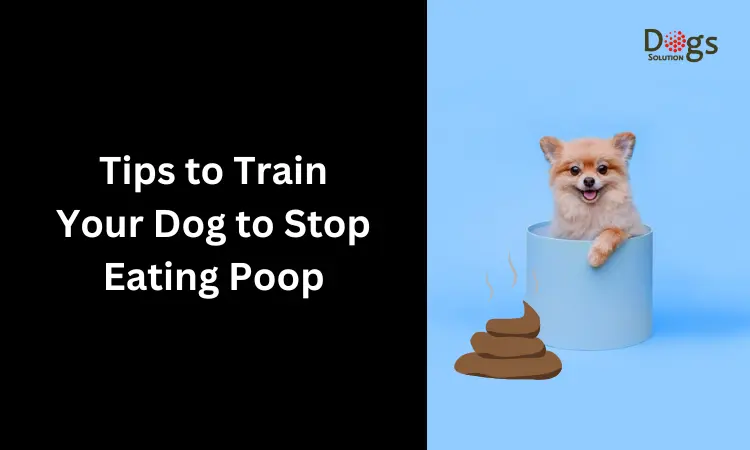
1. Dogs inclined to eat poop often prefer it fresh, so it’s crucial to clean up waste in your yard promptly. If you have cats, extend this practice to cleaning the litter box immediately after your cat uses it. Consider relocating the litter tray to a spot accessible to your cat but out of reach for your dog. During walks, closely supervise your dog and promptly collect their waste.
2. Teach your dog important commands like recall or ‘leave it’ during walks to ensure they stay away from feces. These commands enhance their obedience and create a healthier outdoor experience.
3. If your dog searches for things to eat in the yard during defecation, consider bringing a toy or treat for distraction. This proactive approach can redirect their focus and discourage undesirable behavior
4. Certain dogs eat feces as an attention-seeking behavior. Reinforcing positive behaviors with attention and affection can redirect their focus. While attempting to distract your dog from approaching feces is good, if caught in the act, it’s best to ignore them, discouraging the behavior.
5. Increase your dog’s daily attention by playing games and exploring new activities, such as obedience, agility, rallying, or flyball. This not only strengthens your bond but also provides mental and physical stimulation, reducing the likelihood of undesirable behaviors like poop eating.
6. Consider feeding your dog more regularly or exploring a diet that keeps them satisfied for longer. Always consult with your vet before changing your dog’s diet to ensure it meets their nutritional needs.
7. If your dog chooses not to eat feces, shower them with praise and reward them with a tasty treat.
8. To discourage your pup from eating poop, you might consider vitamin or enzyme supplements. These can be beneficial if your dog engages in this behavior due to a lack of certain nutrients, such as vitamin B. Always consult your vet before introducing any supplements to ensure they are appropriate for your dog’s needs.
9. Various deterrents are available on the market to make poop less appetizing for your dog, altering its taste and discouraging behavior. Some owners have reported success in breaking the habit by adding papaya, cottage cheese, or crushed pineapple to their dog’s food. Experimenting with these options may help find a solution for your pet.
10. If previous owners have punished your dog for eating poop, concentrate on positive reinforcement. While limiting access to poop, be patient and use positive reinforcement consistently.
Implementing these tips consistently and patiently can help break the habit of poop eating in your dog.
Related – Can Dogs Eat Turkey ?
What not to do if your dog eats poop?
If your dog eats poop, refrain from reacting negatively or expressing upset. Avoid punishing or shouting at your dog, which might contribute to additional behavioral issues. Recognize that eating poop is a natural behavior for them, making it a challenging habit to break. Approach the situation with patience, positive reinforcement, and understanding to address this behavior effectively.
How do I clean my dog’s mouth after they’ve eaten poop?
Dealing with a dog that enjoys eating poop presents unique challenges, especially when it comes to addressing the aftermath. Here are some strategies to handle the situation and maintain hygiene:
1. Dental Stick: Provide a dog dental stick for fresher breath.
2. External Cleaning: Gently wipe their mouth with a cloth and water.
3. Food and Water: Ensure they have food and water to clean their mouth naturally.
4. Dog Toothbrush: Use a dog toothbrush (no human toothpaste) with treats and praise.
Despite these efforts, it’s essential to acknowledge that you can’t fully eliminate the consequences of your dog eating poop. Exercise caution with hygiene, avoid kisses, and be mindful of maintaining cleanliness after such incidents.
Why does my dog eat poop in the winter?
Dogs often avoid softer or runnier poop, expressing a preference for firmer stools. Interestingly, some are attracted to frozen feces, particularly in winter when the contrast against the snowy background makes it more noticeable.
Why do dogs eat cat poop?
means they’re used to consuming different things, including feces from other animals. While it might seem gross to us, it’s a normal behavior for dogs, connecting back to their instinct to supplement their diet.
Which dogs eat poop?
According to a 2018 study, specific dog breeds show varying tendencies toward coprophagy or poop-eating. Shetland sheepdogs topped the list with a 41% incidence, while no poodles were reported engaging in this behavior. Another study in 2019, involving over 4,000 dogs, explored the link between a dog’s sex and their inclination to eat poop. The findings indicated that 11% of male and 16% of female dogs exhibited this behavior. These insights shed light on the breed and gender-related aspects of coprophagy in dogs.
My dog eats poo – when should I contact my vet?
If your dog has developed a consistent habit of eating poop or if you’re uneasy about their health and behavior, it’s best to seek advice from your vet promptly. This is especially crucial if the behavior is a recent concern. Your vet can offer insights on managing the issue and may suggest connecting with a behaviorist for additional support.


